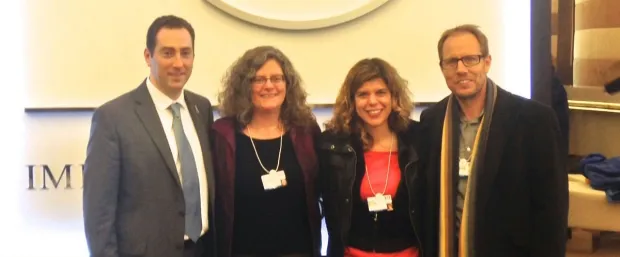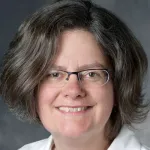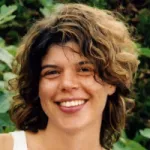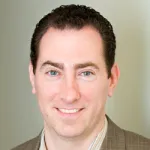
Photo courtesy Tony Wyss-Coray: Stanford neuroscientists Amit Etkin, Marion Buckwalter, Anne Brunet and Tony
Wyss-Coray at the World Economic Forum in Davos.
Stanford Medicine News Center - January 23rd, 2015 - by Amy Adams
A panel of Stanford University scientists spoke today at the World Economic Forum in Davos, Switzerland, about their interdisciplinary approach to tackling major brain diseases like stroke, neurodegenerative disorders and mental illness.
The panelists were all members of research teams created through the Stanford Neurosciences Institute’s Big Ideas in Neuroscience initiative. The panel discussion was moderated by Phil Campbell, editor-in-chief of Nature. In addition to their own research, the scientists discussed the pressing need to bring diverse ideas and expertise together to solve health challenges that are becoming an increasing emotional and economic burden as our society ages.
“We are really lucky here at Stanford that we can leverage the work of engineers and basic scientists, and we have expertise in moving discoveries into the clinic,” Marion Buckwalter, MD, PhD, assistant professor of neurology and neurosurgery, said in an interview before the forum. Buckwalter leads the Stroke Collaborative Action Network, which unites stroke-research efforts underway across Stanford to develop therapies and improve stroke recovery.
Young blood
Panelist Tony Wyss-Coray, PhD, professor of neurology, co-leads the Stanford Brain Rejuvenation Project, which focuses on brain maintenance and regeneration and the role of the immune system in these processes.
Wyss-Coray has found that factors in the blood of young mice can restore brains of older mice. He and his research team connected the blood supplies of an old and young mouse, then found physical and biochemical changes in the older mouse’s hippocampus, a brain region involved in learning and memory. The hippocampus in the older mouse essentially got recharged from substances in the younger blood.
The Brain Rejuvenation Project will draw on these findings, as well as those of Anne Brunet, PhD, professor of genetics, who was also on the panel. Her group is investigating the role of genes and other factors in aging of the neural stem cells that repair damage in the brain. Her work could lead to insights into our own longevity, cognitive function in old age and susceptibility to diseases of aging.
Panelist Amit Etkin, MD, PhD, assistant professor of psychiatry and behavioral sciences, co-leads the NeuroCircuit project, which brings engineering, basic sciences and clinical faculty together to map brain circuits associated with health and disease. In parallel with that work, project members are developing technologies to noninvasively manipulate those circuits and treat mental health conditions.
Etkin said that in addition to identifying brain circuit abnormalities in psychiatric disorders, they are investigating how circuits are altered by existing treatments such as psychotherapy or medication. “There might be places in the brain we can stimulate as a stand-alone therapy or to enhance response to psychotherapy or medication based on understanding those interventions in the language of brain circuits,” he said in an interview.
Stroke research
Like NeuroCircuit, the Stroke Collaborative Action Network brings together a diverse group of faculty members who had been looking at similar problems but from different perspectives. “The idea of forming our group is to leverage different perspectives to both understand why the brain doesn’t rebuild itself completely and to generate therapies for stroke survivors,” Buckwalter said.
During the panel discussion, she discussed technologies being developed through the network by Stanford engineers that will help measure a person’s movement after stoke. She also discussed an implantable sensor under development that could enable possible therapies discovered in animals to be translated more effectively to humans. She also described her own ongoing research into the role the immune system plays in stroke recovery.
In addition to the panel discussion, Wyss-Coray and Etkin spoke with NPR science correspondent Joe Palca, who moderated a series of live conversations about the human brain at the Davos forum.




